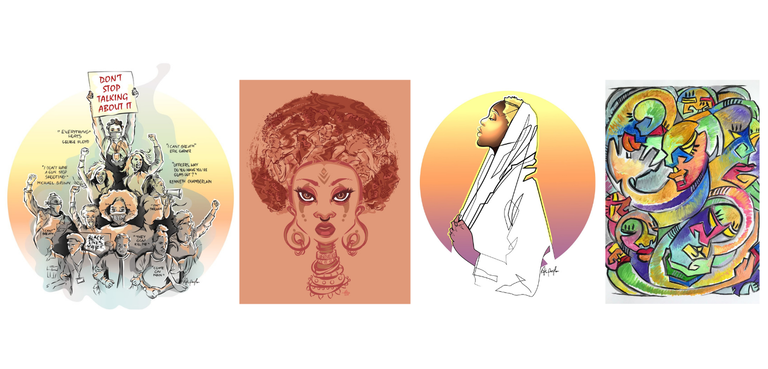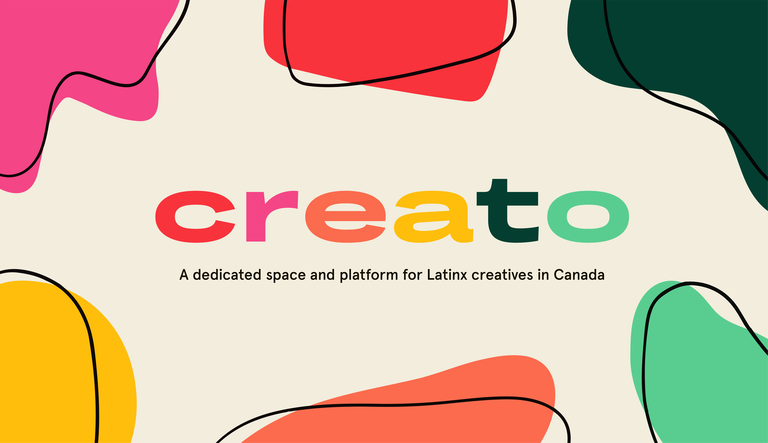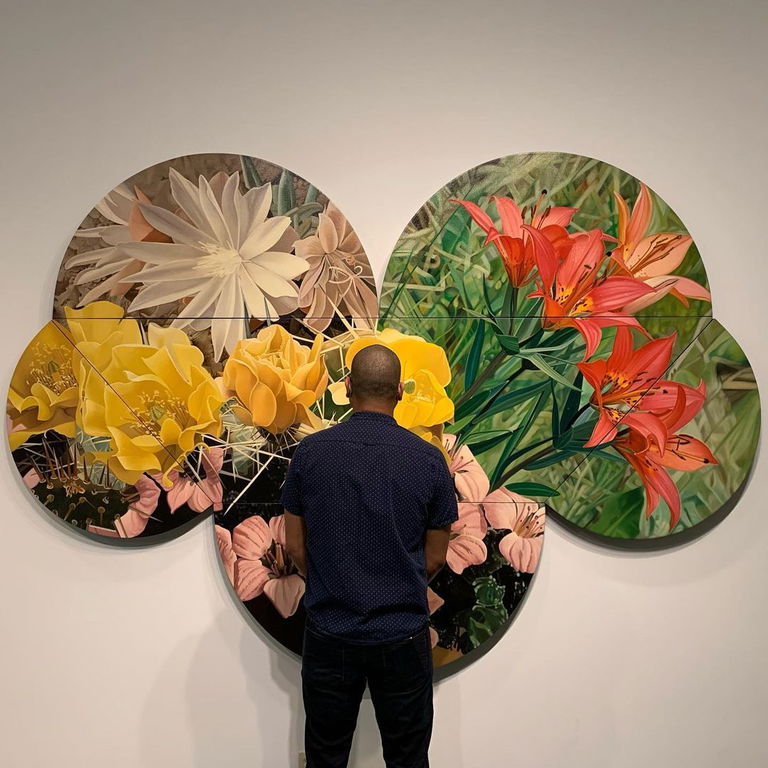
Make Room For... Chris L. Butler
Culture Days x Chris L. Butler
Nov 19, 2021
Introducing the Make Room For… Series - a shout-out to new or rising artists, creatives, and/or collectives from across the country. We’re spotlighting those who are making waves in their practice, building community, creating boldly, and sharing their visions for reshaping the future of arts and culture in Canada. Next up, Chris L. Butler, a Poet and Essayist occupying space, making connections, and exploring identity as an immigrant in a new country. Get to know Chris in his own words below.
Can you tell us a bit more about how and why you create?
I have always been called to the arts from an early age. As a child I loved to write, but I also loved to paint, sing, dance, and draw. I wrote my first poem around 8 years old, and have been hooked on the art form ever since. As I matured into adulthood, I knew that the visual arts would be more of a hobby, but the literary arts was where I wanted to make a career for myself. I don’t exactly have a ‘why’ because I have always said to myself, “why not?” I was able to begin my writing career full time when I came to Canada and was waiting on my work permit (2020). I began freelancing in the States virtually during this time.
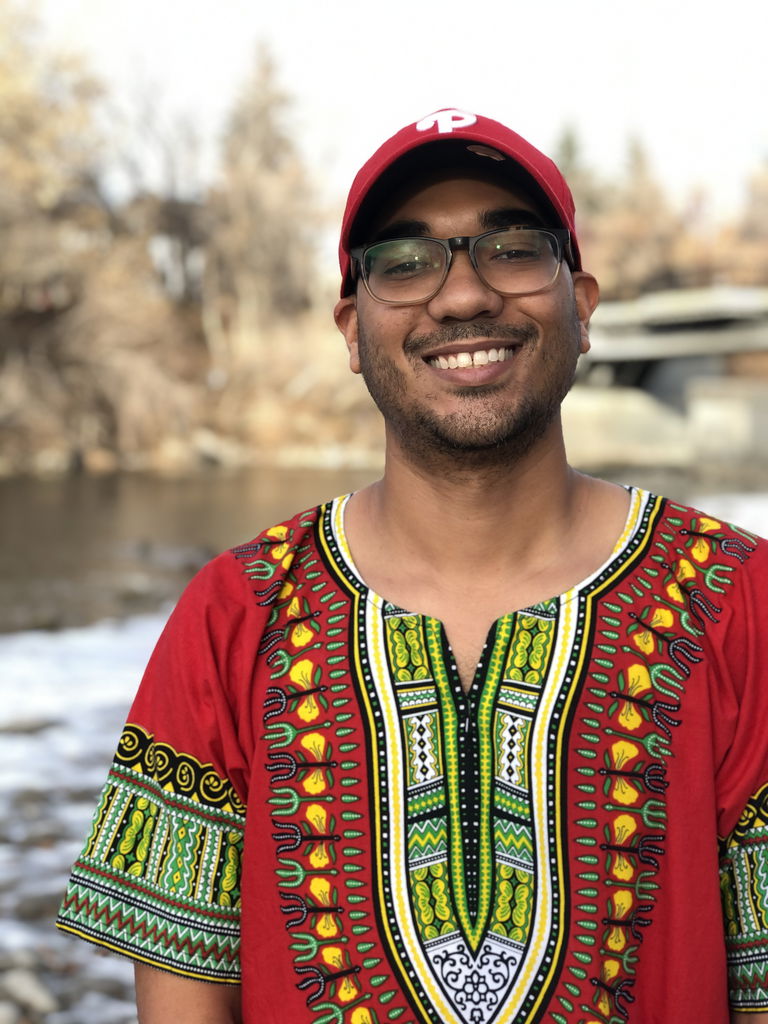
Poetry has always been the literary medium for the people. I believe right now, being a literary citizen for the greater good is my role.
When you’re working on a new piece how do you organize your thoughts? Do you keep a journal on you to jot down ideas? Is the Notes app in your phone riddled with random words and sentence fragments? Any other insights into your process?
I try to write everything by hand when I can. I can’t stare at a blank computer screen because I would press the delete key too much! I need to feel the pen hitting the page in chaotic free thought. My writing mentors and instructors over the years have always told me to free-write that first draft, because getting your initial thoughts out is important to the writing process. I do have poems in my phone under Notes though. This usually happens when I don’t have access to pen or paper, like when I am walking my dog. I also have notes that are random ideas for future pieces, because sometimes I have an idea, but not the creative inspiration to write it in that moment. Whenever I have no idea what to write, I try to circle back to something off that list. I don’t think there is any more ideal process than what works for an individual. I do not write every day. Some days are for revision, reading, and living because those are fundamental to good writing.
Growing up in West Philadelphia, you were inspired by 90s hip hop, graffiti, street art, and ‘Philly grit’—have you discovered any Calgary touchstones or personalities that have influenced your work?
Totally! I think one thing that shocked me was how much graffiti is in Calgary (a good thing). I also love how many murals there are in the city. Especially the ones dedicated to Indigenous people. I would like to see more American cities embrace these types of projects. As far as Calgarians who have inspired me goes, definitely Cheryl Foggo and also the Toronto-to-Calgary transplant, Wakefield Brewster. He’s the real deal, and I’m glad we got to finally meet during the pandemic a few months ago.
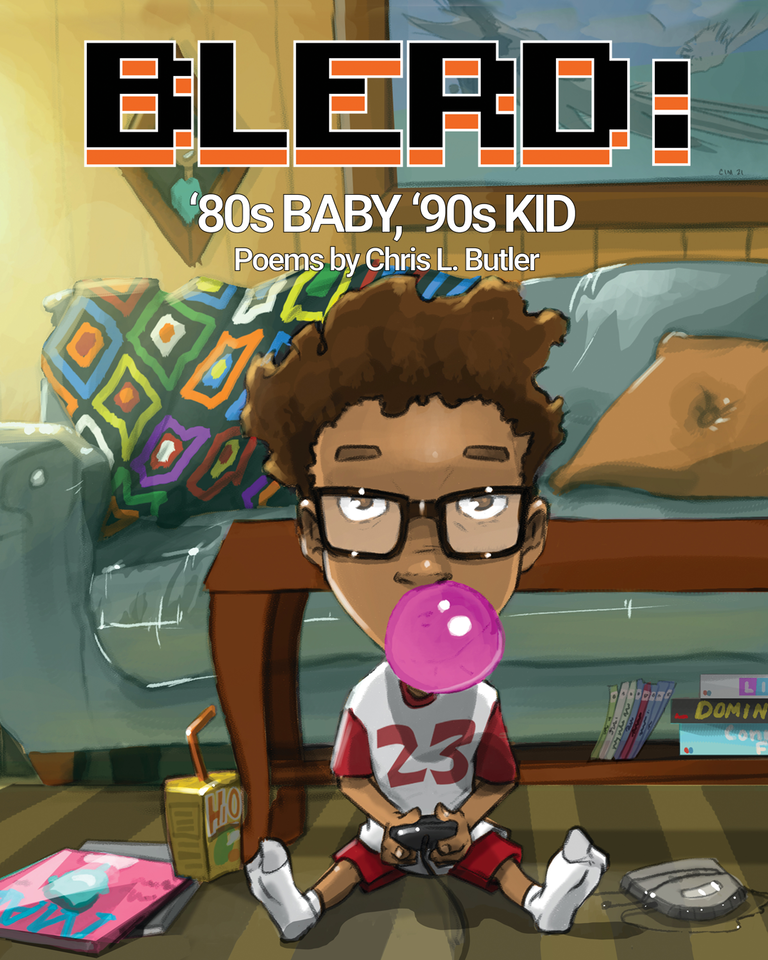
Your website bio mentions that you’re a retired freestyle rapper—can you speak to the relationship between the two? Was it easy to transition from one to the next, or were you always interested in practicing poetry as well?
Yes, emphasis on retired haha. I was actually rapping as early as 10 years old. I would always take breaks, and find new people to rap with both after school on the way to the subway with friends, or jumping in ciphers with friends in university. My closest friends and family knew I was in to rapping, but for a long time they didn’t know I was also interested in writing poetry.
I truly believe that poetry is the grandmother of hip hop. I would even argue that before I read ‘The Canon’ I was influenced by rappers more than poets. Transition wise, at first it was tough because I found the lyricism in my poetics was more on the hip hop side, but over time I’ve found a more perfect harmony. I think a lot of Black American poets started as rappers in some capacity, but it’s not a popular thing to admit. I, however, embrace this lineage.
In Newcomer Elegy: A List of the Things I’ve Yet to Do in Canada, you say that you prefer the term “immigrant” over “newcomer”. Why is this distinction important to you and how does that reflect in your role as a creative?
I think this comes from being half American. I’ve also lived in Texas, a very conservative place that is often unkind if not brutal to immigrants. My father, a Dutchman, immigrated to Australia in his teens. I always saw myself as a son of an immigrant, even though he never lived in the U.S. When I got to Canada and people began calling me a newcomer, I felt that this was an odd experience. As an internationalist, I want to be in solidarity with immigrants across the world, and I feel that while ‘newcomer’ sounds nicer, it’s not really a global term.
How has the role of community (however you choose to define ‘community’) impacted your practice? Alternatively, how has your poetry enabled you to connect with folks and create community in your new city?
Community is an interesting word. I would say I am still very new to the literary community, and because of that I haven’t gotten a proper chance to gauge it outside of virtual connections/events. But as far as my own community goes, Blackness is a major part of my work. I was raised by my mother, a Black single mom in Philadelphia. The Black community is really all I know. In my work, I try to give back to the African diaspora as much as I can, because that is the group I feel most a part of despite my mixed heritage.
With the rise of the pandemic and the ongoing fight for racial and social justice, there has been a notable surge in activism and advocacy among young people—especially in the way of creative output. Why do you believe the arts, and poetry specifically, is such a vital medium?
I believe that everyone within the liberation of marginalized peoples movement has a part to play. Just like we need to view human beings through a lens of intersectionality, I believe that there are intersections within civil rights and related movements. Gil Scott Heron, James Baldwin, Maya Angelou, and Paul Robeson were vital to Black liberation via the arts. I have been a community organizer in the past and I learned a lot from this experience. But I also feel that my writing can help people feel seen or heard. Not everyone can get out into the street and use their body for direct action. My mother was in college at Howard University during the civil rights movement and she taught me that everyone has a role to play. She built a career educating Black and Brown youth in Philadelphia public schools, and then as a professor at Historically Black Colleges and Universities. Poetry has always been the literary medium for the people. I believe right now, being a literary citizen for the greater good is my role.
Do you have any advice for new or emerging poets, especially those who speak to critical social issues, or topics of identity? Who would you recommend for inspiration?
Be careful who you take advice from. Find trustworthy people that you can be vulnerable with. I have a tight knit group of people who see my early drafts. I know that they won’t judge me before the poem or essay is where it needs to be, but only serve to make it better. Also, if you aren’t reading, your writing is going to hit a brick wall. I find the more I read, the better I write. I begin to notice the cracks in the wall or, in other words, areas I can improve to get to the next level. Don’t just read the dead, read living writers as well. My favorite contemporary poet is Danez Smith. They embody the beautiful balance of truth, power, humor, performance, and literary genius.
What’s next for you creatively?
I have my second chapbook coming out on December 1st with Fahmidan Press & Co. It is in memory of the 25th anniversary of Tupac Shakur’s murder and the 30th anniversary of his first album, 2pacalypse. It asks the question, “who is a prophet?” by using erasures (black out poetry) of some of the songs on 2pacalypse, and poems on me wrestling with my Christian upbringing. After that, in 2022 I’m going to be working on new ways to expand my poetry with audio/visual projects.
Where can people go to see what you’re up to?
You can follow me on Twitter @CLBpoetry and on Instagram @clbutlerwrites. I gave up Facebook in 2020 during the U.S. presidential election for my mental health. It was long overdue to be honest. Other than that, you can always keep up to date with things on my website www.clbutlerwrites.wordpress.com.
And, finally, let’s talk about an inexplicable Canadian classic. Ketchup Chips. Yay or Nay?
To be honest, they scare me a little bit. I love french fries and ketchup, but I haven’t been brave enough to try the chips yet. Now I’m a little embarrassed though, and feel I must. Maybe your team can recommend to me the best ones to try. Don’t worry though, I have tried poutine more than a few times and I absolutely love it. Probably too much, because American cheese fries and I have broken up forever. It was not a messy divorce.
Newcomer Elegy: A List of Things I’ve Yet to Do in Canada by Chris L. Butler
2009 was the first time I set foot in Canada.
I was not a newcomer, but rather a tourist. I stood in solace,
listening to the crashing waves of Niagara Falls
as they roared an opera of foreshadowing. That one day,
almost ten years to be exact—this country would be my home too.
Before I knew it, it was 2019 and I was in Devonian Gardens getting married.
O’ Canada, the home of my bride to be—but also my home to be.
I wish I knew that discovering things virtually, was another foreshadowing of what was to come.
I’ve lived in Canada for over 700 days. The first 200 were great. Health care access, legal cannabis, Albertans love Texas, and I don’t really have a hockey team. I used the Flames as a way to connect.
I used all of these things as a way to connect.
I wasn’t committed to wearing a Canadian tuxedo, or saying “washroom” instead of “bathroom,” but I was committed in my own way.
I even drank Alberta Genuine Draft sometimes.
Okay, I drank Alberta Genuine Draft more than a few times.
Calgary had become mine. The new pocket of the country
where my Blackness occupied space.
I had soaked in the sounds of Niagara,
meditated poems inside my psyche
on the shores of Kelowna.
I had done the same in Kananaskis.
I was becoming one with the country, embracing these places as I juggled identities old and new.
Black American
Afro-Dutch
tourist
expat
newcomer.
I prefer immigrant.
This is an elegy, I’m here to abolish the term.
For me, newcomer feels like a cover up tattoo.
I’m an immigrant. I’m not trying to hide it.
Like going to a comic book convention as a cosplayer,
when you’re a Black you just stick out. There’s a certain swagger you bring.
Despite all of this, I have yet to taste true Canadian maple syrup.
The first 200 or so days here were magic.
I wrote poems about police brutality
at Fort Calgary, unaware of the irony.
Ignorance is bliss.
O’ Canada, I woke up early for Boxing Day shopping,
and ate Poutine with Christmas joy each time.
I bachelor partied on Stephen Avenue
and returned to the same place months later
ogling at the ice sculptures with my queen,
our bodies people watched to keep warm, and pass time.
Again, ignorance is bliss, because looking back, even the boring nights were paradise.
I listened to the expressions that are local to y’all, foreign to me. With each “eh?” I felt my heart warming to Canada, as my memories of America began to grow as cold as the very sculptures I was ogling.
My country has never been completely innocent. Nor has the new one for that matter.
But Jack Gilbert taught me that we should enjoy life even when our house is burning.
I watched the madness that my president forced upon my people at home.
I wanted to apologize to Canada, to the rest of the world.
Not too long after, my new leader’s Blackface history was unearthed.
Whether a “newcomer” here, or a citizen at home I was not welcome anywhere.
Even though I was frozen in the moment,
I decided I would not let this too turn me into an ice sculpture.
I would not let Canada crush me like America has tried to.
I began to make a list.
A list of things I wished to do.
A list to pass the time.
Besides my wife, or my dog, this list was all I had.
Most immigrants get to experience what a nation has to offer. But for the past 500+ days. I have only been offered my home. The world is in crisis. With each one of us dancing along to the tune of fear, hoping it doesn’t add kerosene to the flames. Many people aren’t working from home anymore, they are living at work.
Boundaries are deleted. Everything is virtual.
I want to travel again. To go to Raptors games, and spend $18 on a beer because that’s the equivalent in loonies. I want to complain about how expensive it is. Deep down inside I’m just happy to be in Toronto and hoping I see Drake.
I want to get lost writing poems at the Banff Centre while dreaming of becoming the Black Anne Carson, the next Cheryl Foggo, or Suzette Mayr.
I want to use my French for a weekend with locals in Montréal because I haven’t been to Paris since a time where I thought my peach fuzz whiskers was a claimable beard. I want to perform poems in Quebec City because the French teacher who gave me a D was from there. I want to speak up at a city hall meeting without risking my health. It’s a way I can use my voice because permanent residents can’t vote in elections, and sometimes I’m tired of bleeding on the page.
I left America because it hates that I look like Trayvon Martin.
I want to live in a Canada where there are no more Colten Boushie’s.
I long for the days we all can get along here on Turtle Island.
I long for the days when I can think less about why Colin Kaepernick never got another job in the NFL. Or why the CFL didn’t offer him a contract. How they missed another opportunity to make Canada look great.
I want to wake up and smell the flowers
across magnolia fields in Victoria, British Columbia
a place that will mesmerize my irises
a place my father once called “the promised land”
but not as beautiful as the euphoric tulips in Amsterdam.
My sister once told me my dad wanted to move to Canada
to be closer to me in America, but it was too cold.
The idea of it all makes me to jump face first
into a marshmallowed mountain of Manitoba snow.
Don’t worry,
I was born in the Commonwealth of Pennsylvania.
I can handle it.
Take me to Toronto Caribana!
I want to two step to Trinidadian tempos
while eating Jamaican jerk chicken at Nathan Phillips Square.
My godmother was from Port of Spain,
she would want me to bask in this Black joy.
I need to bless my palate with soul food from Nova Scotia.
My friends in Houston or Philly might see this as a cardinal sin,
but Black people are everywhere.
Halifax is the home of the only Black woman on currency.
For some that may be a problem. For me it’s a miracle.
In fact, I prefer Desmond dollars. Or Interac.
The most American part of this genre bending piece is the idea that I can’t locate Yukon on the map
and sometimes mix it up with the Northwest Territories. Nunavut makes sense to me, but I promise
I’ll visit all of them and get it right one day.
Cover image by Yasmin Peeran.
This article is part of a special series shouting-out new or rising artists creatives, and/or collectives from across the country that should be on your radar. Explore more profiles below:
